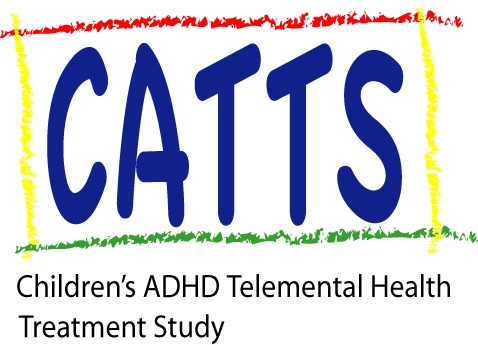Who is eligible for CATTS?
Eligible children must meet the criteria outlined in the checklist below.
Eligible children must have symptoms and behaviors consistent with a diagnosis of ADHD even if such a diagnosis has not been made. For instance, the school might suggest an ADHD evaluation, or a parent might suspect ADHD, or a doctor may have just diagnosed ADHD. Children who have never had treatment for ADHD are eligible. Children who have had treatment in the past that was not successful are also eligible. We are especially interested in children newly suspected of having ADHD.
Children not eligible for the study include children who are being treated and doing well, since the study would not improve on their stability. Children with problems like hearing voices, bipolar disorder, or autism would not fit well with the treatment being offered. Children with attachment disorders need other services that are not offered in this study.
Finally, primary care physicians must be willing to participate in the study and then take over the child’s care at the end of the study. Children and parents must be willing to complete questionnaires at several points during the study (a monetary incentive of $35 is offered for each completed set of questions: $245 total if all questionnaires are completed over 30 weeks).
| child is 5.5 to 12 years old | |
| child has a diagnosis of ADHD or symptoms suggestive of ADHD | |
| child does not miss more than one day per week of school | |
| child is not a ward of the state (not in foster care) | |
| child and parent speak English (predominantly Spanish-speaking families with some conversational English are also eligible) |
|
| child lives with a legal guardian (parent or relative) who can bring him/her to the sessions | |
| child is not residing with a guardian who has a drug use problem | |
| family lives within driving distance to one of the following cities: Olympia Longview Wenatchee Everett Richland Boardman OR | |
| child has a primary care doctor whom we can contact about participating in the study | |
| child and primary caregiver are willing to complete assessments several times during the study | |
| child attends school and has a teacher whom we can contact about participating in the study | |
child does not have a diagnosis of: |
|
|

